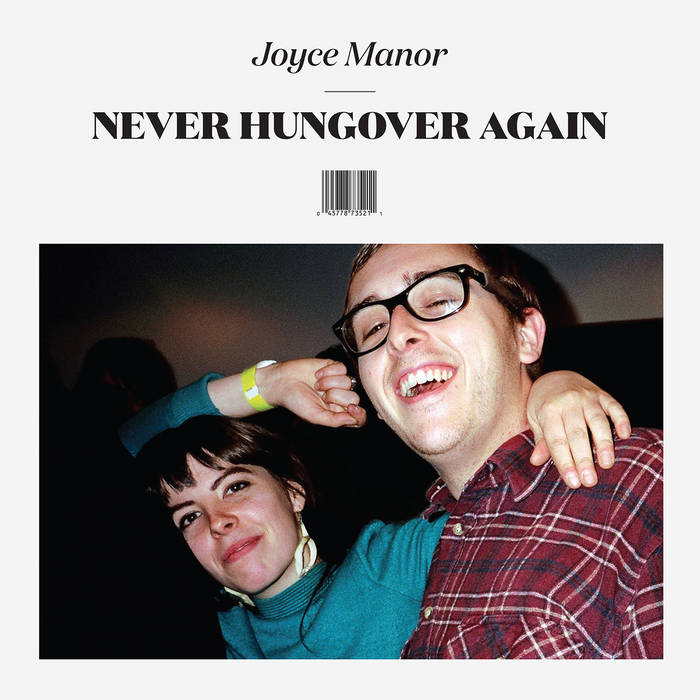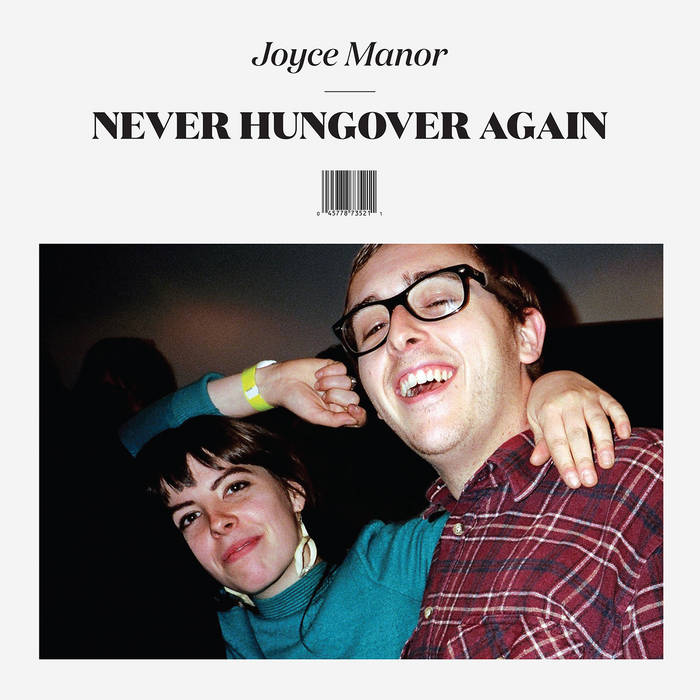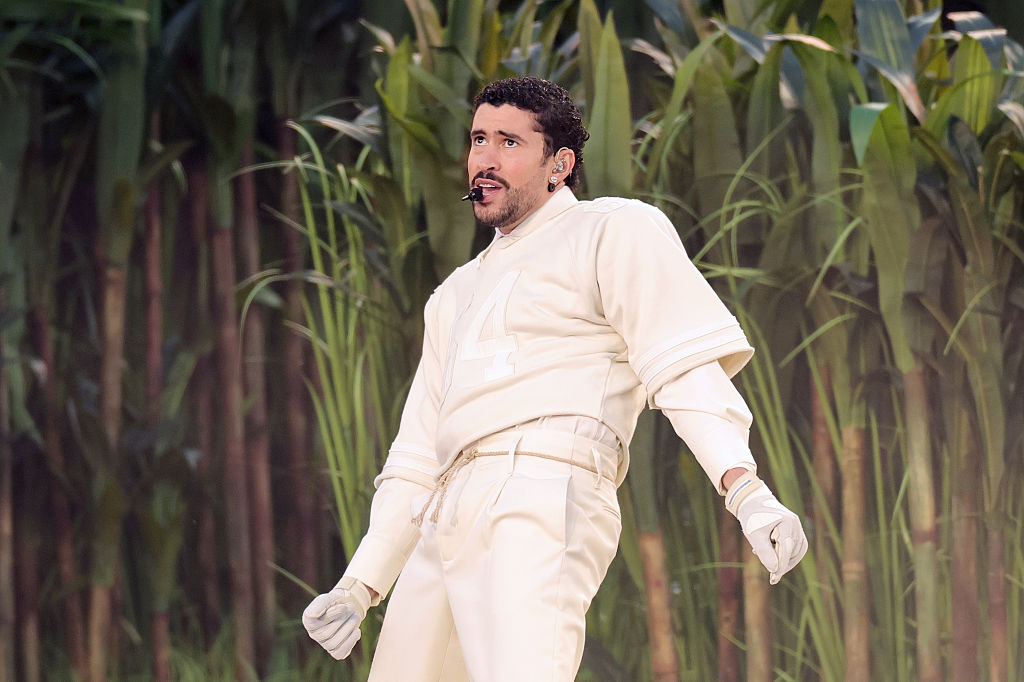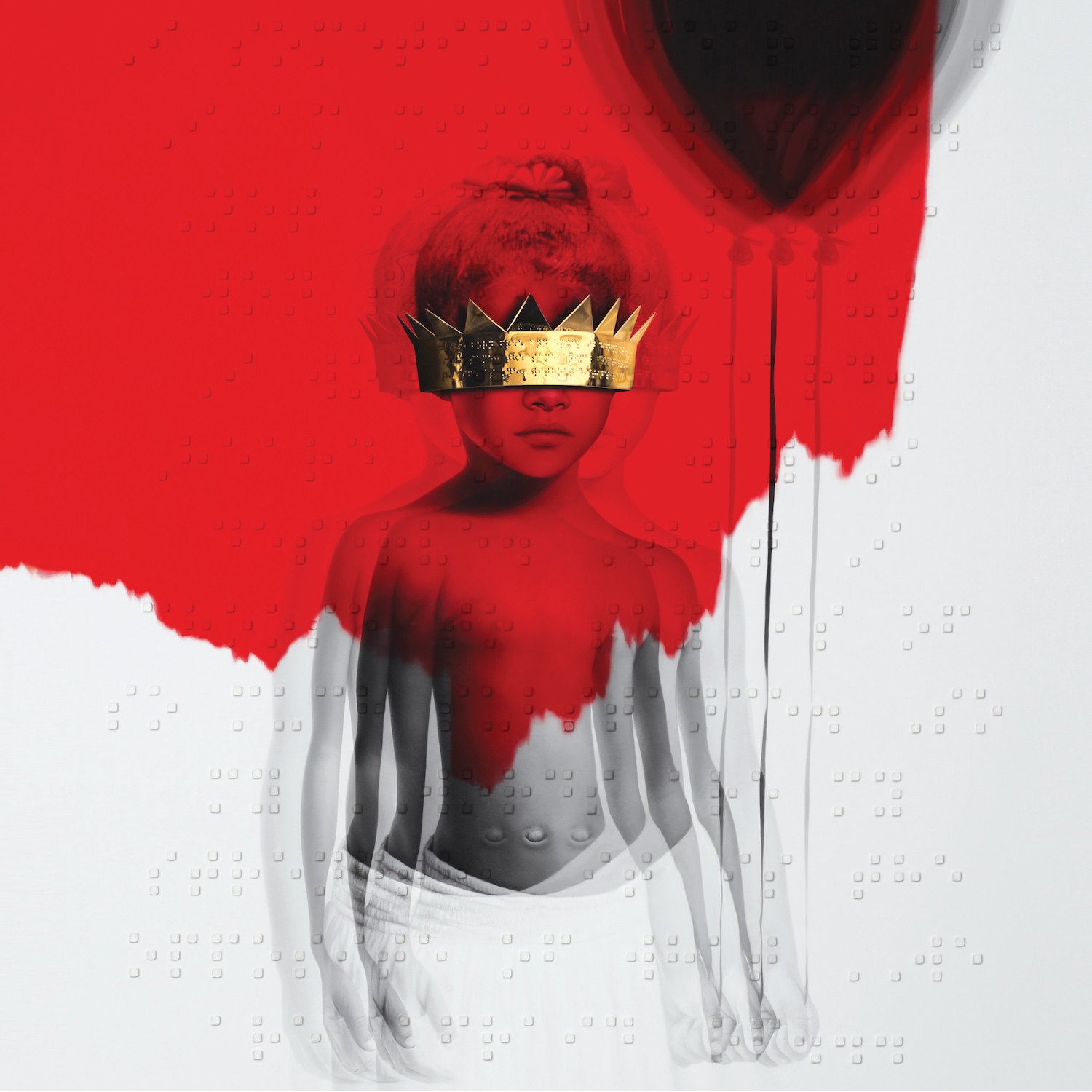- Epitaph
- 2014
The best possible outcome for a piece of art to have, I think, is to inspire its observers to make art themselves. When I first heard “Falling In Love Again” by Joyce Manor, a surge of excitement shot through me and I was gripped by a desire to create something as warm and evocative as that song. I grabbed my laptop and typed away, birthing my own little universe in the form of a short story. It wasn’t good, but I felt an inexplicable, intoxicating sense of connectedness, which only expanded once I heard the rest of the album it was from: Never Hungover Again by Joyce Manor, which turns 10 today.
At age 16, I would sneak out and meet with my friend Stephanie and sometimes we would go to a house party where I felt like a misplaced outcast in the midst of popular kids. In a random person’s living room, she tried to shove a pill in my mouth but my lips were sealed shut. Later that night, a switch flipped and everyone poured out the front door in a frantic stream. Our feet slammed against the vacant suburban streets invigoratingly while we ran. We asked a girl what happened, and she said something about a gun. By the main road, Stephanie convinced me to get into a car with random guys. Instead of murdering us like I worried they would, they just dropped us home. On New Year’s Eve one year, Stephanie came over to my house while my family had people over, blasted “Heart Tattoo” from Never Hungover Again on a speaker, rummaged through purses that lay on my mom’s bed, plucked a cigarette from a pack, and smoked it out the window like her life depended on it while I stood watch.
When I dove into Never Hungover Again, I was overcome with this feeling of finding something I’d always been searching for. It was the perfect house party where I felt both dizzy and safe; it was the sweet spot in a romance where satisfaction that’s been built up for a while is finally on the horizon. It was the teenage mischief and exhilaration I’d only experienced in bits and pieces but mostly saw in movies.
Joyce Manor is Barry Johnson on vocals and guitar, Chase Knobbe also on guitar, and Matt Ebert on bass and backing vocals. Kurt Walcher was on drums before departing in 2015. Before I encountered them, it seemed to me that raucous, loud music was the best at communicating emotional, sensitive ideas. The clamorous catharsis of Pennsylvania bands Tigers Jaw and Balance And Composure were my safe havens as the singers shouted about heartbreak, disillusionment, and pain. I’d seen the name Joyce Manor online a few times before finally clicking play on “Falling In Love Again.” For a while, I was too scared to listen to the rest of the album, assuming it could only disappoint me after "Falling In Love Again" set the bar so high. But when I gave in I was amazed to realize I was wrong.
It makes sense Never Hungover Again would resonate with me as much as it did; throughout high school, my friends and I would listen to Weezer while longboarding through their neighborhood, and I once spent an entire summer listening to the Smiths. Those two groups are probably the most referenced when discussing Joyce Manor, but their genre is still a topic of debate. Emo? Pop punk? Indie rock? “Because of where we came from, without even trying, there was a subtle hardcore influence,” Ebert explained in an interview in 2014. “I think the more and more we play together and the older we get we’re slowly moving away from that and our songs are more like pop songs. I don’t want to say it’s what we’ve always wanted to write, but it’s where we’re at right now.”
That same year, Johnson told an interviewer about the songwriting process, “We just write and try to trust our gut. If we have a part in a song that not everyone is completely stoked on playing, it gets cut.” It's clear that Johnson also has a keen eye for editing, which makes every second of the music worthwhile. The lyrics are visceral fragments strung together; the songs often overflow with idiosyncratic imagery that leads to a revelatory one-liner, often about a lingering sense of loss: "I always knew you'd leave me someday," on "In The Army Now"; "Now I'm alone again," on "Victoria"; "Wonder how long something can last," on "Catalina Fight Song."
After unveiling their debut full-length Joyce Manor in 2010, the band was approached by Asian Man Records about its follow-up. However, they were stressed and nervous about the possibility of disappointing a label they admired; the result was Of All Things I Will Soon Grow Tired, a fan favorite but not necessarily their best. With Never Hungover Again, they were on a mission for redemption. Following their instincts, Never Hungover Again came to life as an opus that doesn't fit into any particular box. An emo album for matured miscreants; an indie-rock record for people who wanted vigor. “There’s just a void of good indie rock songwriting that is also kind of intense,” Johnson reflected years later about the success of the LP. They struck a chord that no one else had before. It was produced by Joe Reinhart, who also plays in fellow beloved emo bands Hop Along and Algernon Cadwallader.
Opener “Christmas Card” promises an urgent, stirring album. Guitars crash with purpose rather than just for the sake of loudness, until they quiet for a reprieve to allow for Johnson’s shouted confession: “You disappear into the crowd/ I don't know what you tried to tell me/ You know I think about it still.” This scene is vivid and poignant enough to be a movie still; a miscommunication in a noisy environment sparks a lasting sense of mystery and longing, which serves as the undercurrent for the rest of the songs.
We rely on reader subscriptions to deliver articles like the one you're reading. Become a member and help support independent media!
That wistfulness is especially palpable on the following tracks “Falling In Love Again” and “End Of The Summer,” both of which burst with beautiful romance. “I think you're funny/ I like your friends/ I like the way they treat you,” Johnson intones on the former, whose bassline is as cozy and riveting as the buzz from a shot of liquor. What also makes "Falling In Love Again" incredibly moving is a cinematic synth reminiscent of the one on the Smiths' "There Is A Light That Never Goes Out" (aka the best Smiths song ever). “End Of The Summer,” on the other hand, is outlined with doom: “I start to feel it fade away/ There's nothing I can do.” Despite this proclamation, sung with sadness and intensified with harmonies, attempts will be made to thwart fate — that’s what Never Hungover Again is all about. It’s about living in the moment knowing it will end; it’s about giving ourselves into the feverish emotion that comes with youth before we’re forced to grow up.
From there, Joyce Manor catapult straight into madness. On “Victoria,” influenced by the Kinks song of the same title, Johnson recounts getting locked out, climbing over a wall, and scraping his arm enough to bleed. “Schley” encapsulates a bout of weed-induced paranoia; “Heart Tattoo” is about wanting to be inked just for the pain and the permanence. The instrumentation struggles to keep up with Johnson as he spits his stories in alluring slivers, but the songs always end with a big, orchestrated boom. The momentum continues with “The Jerk,” which Johnson has called their best song. It’s a sloppy whirlwind of noise that reminds me of the night Stephanie and I rushed out of the house party along with the throng of partygoers; the adrenaline is through the roof, and the stakes are high. “I think it was just trying to outrun boredom,” Johnson has said about the album. Never Hungover Again is on a quest to outrun adulthood, heartbreak, disillusionment, and itself.
Johnson has also said that he knew Never Hungover Again was going to be good once Knobbe spent hours playing guitar and smoking weed when his girlfriend was in class at college. “And he got way better at guitar by doing that,” he said. The riffs especially shine on “In The Army Now,” which leans into punk bombast. The same can be said of the following track, “Catalina Fight Song,” an anthem about ennui with images of a Target in a mall and hot Gatorade in a car. Never Hungover Again finishes on a tame note with the jangly “Heated Swimming Pool,” which feels like finally falling asleep after a long, crazy night as the sun is starting to rise.
Over the years, Never Hungover Again has achieved critically acclaimed status. The record earned a spot on Pitchfork's list of the 200 best albums of the 2010s, falling at #90; it made Rolling Stone’s list of the 50 greatest pop-punk albums; Consequence slated it at #2 on its list of the top 15 emo albums of the last 15 years (shoutout to our own Abby Jones for that). However, at the time of the release, Johnson was disappointed by the reaction. “Honestly, I kind of thought all the reviews were fucking cowardly,” he reflected in 2019. “The Pitchfork review giving it a 7.8 — I was kind of pissed. I had a lot of people being like, ‘Oh, shit, you got a good score.’ But I was like, ‘It deserves better,’ because I really do think it’s a really special record and I wasn’t sure I had anything better in me.”
It’s obvious that the appreciation for the LP has grown over time, with people lamenting how annoying fans will be for its 10-year anniversary (sorry). But Never Hungover Again masterfully achieves what most artists spend their lives trying to accomplish: It captures intense feeling and passes it on to its listener. When I listen to Never Hungover Again, I'm 16 again running out of the house party into the night streets armed with a sense of invincibility, a feeling so strong that it feels eternal. Of course it's not — nothing is. That feeling, though, is immortalized in Never Hungover Again, a true masterpiece that allows us to live in a space of intoxicating youth forever.







